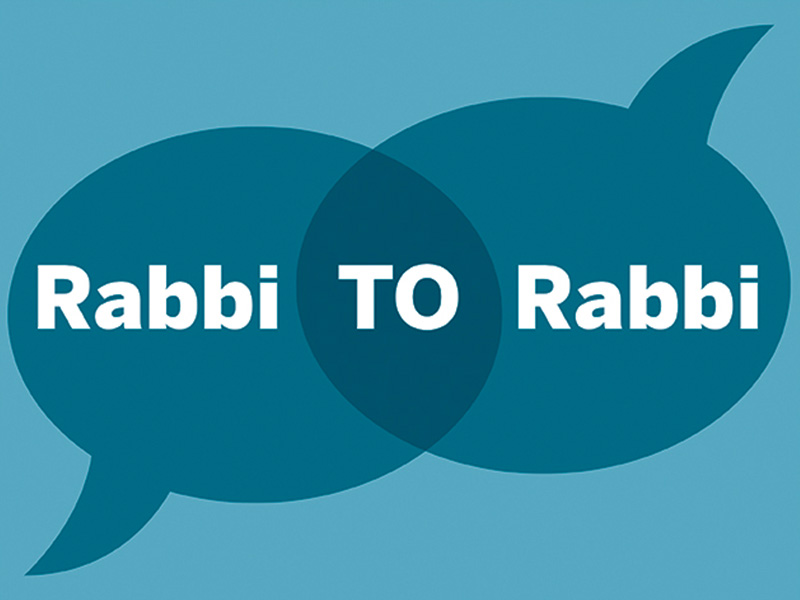Rabbi Micah Streiffer: Temple Kol Ami, Thornhill
Rabbi Eric Grossman: Akiva School, Montreal
Rabbi Grossman: The Talmud cites the practice of reviewing the laws of Passover beginning one month before the festival. Indeed, for many of our faith, the ritual of pre-Passover cleaning, shopping and cooking is already well underway. I have noticed, however, that the worry and stress usually begin even earlier. (My grandmother forbade hametz in our rooms starting after Hanukkah!)
At this time last year, two prominent Orthodox rabbis had an online debate. One argued that Passover preparations should be minimal and painless, while the other argued, “If cleaning for Passover is easy, you’re doing it wrong.” What do you think? Should we seek the easier way to observe Judaism, or is there a value to performing our duties in a more demanding fashion?
Rabbi Streiffer: Funny you should ask. I noticed a few weeks ago that my local supermarket already had the Pesach foods out … and it wasn’t even Purim yet! How early do we need to start buying matzah?
If you’ll forgive a brief rant, I think this is an opportunity to correct a misnomer. There is a perception out there that Passover restrictions are meant as a form of self-affliction – that we should feel like slaves by depriving ourselves of bread and baked goods for a week. Nothing could be further from the intention. Unlike Yom Kippur, which really is a time of self-affliction, Pesach is a feast day, a time of celebration. The restrictions provide an opportunity to try out special foods, cook unique recipes and be creative in our kitchens and around our seder tables. They are not an affliction.
Should Judaism be “easy” or “hard”? I tend to prefer low barriers, so that Jewish practice can be accessible to all. But at the same time, it should ask something of us so that we take it seriously. As a Reform rabbi, I encourage people to make informed choices about how they will practise Jewish rituals. I don’t believe there is any single “right” way to keep kosher or observe Shabbat. Rather, each individual is authorized (and indeed, responsible) to learn about the practices and choose how they will observe them.
Our stringencies of practice can bring significant meaning, structure and spirituality into our lives when we choose them of our own volition. When they are forced upon us by others, they can feel like a burden.
READ: RABBI TO RABBI: HERETICS OF VALENTINE’S DAY
Rabbi Grossman: Your apropos rant made me think of the opening lines of the Magid section in the haggadah, when we hold the matzah aloft and say “Ha lachma anya” (This is the bread of affliction.”) Later in the seder, though, we describe matzah as the bread of freedom and redemption. So it strikes me that there are two sides to the matzah and to Passover itself. It is a time of both hardship and freedom.
I would suggest that this duality is true of Judaism in general. It is both demanding and, at the same time, pleasurable and redemptive. I am personally inclined to be lenient in order to make halakhah accessible to all, making it possible for more people to participate in the fullness of Jewish observance. At the same time, I believe that the mitzvot are matters of obligation rather than choice. There is great satisfaction and pleasure in carrying out one’s duties.
Rabbi Streiffer: If there are two sides to every matzah, then the real question is: which side do you put your cream cheese on?
But in all seriousness, your point about the matzah having two meanings is well taken. In fact, our texts teach that Pesach should “begin with degradation” – that is to say, the affliction of slavery – “and end with praise.” This is a holiday that simultaneously reminds us that there is a great deal of suffering in the world and that we are surrounded by blessings.
I’m reminded of the old adage that the purpose of religion is to “comfort the afflicted and afflict the comfortable.” In that sense, Pesach is a kind of microcosm of Judaism, teaching us both to live our lives with joy and gratitude, and to commit to repairing our broken world. It seems to me that whether we are lenient or strict about the cleaning, these central messages ring true in every generation.
